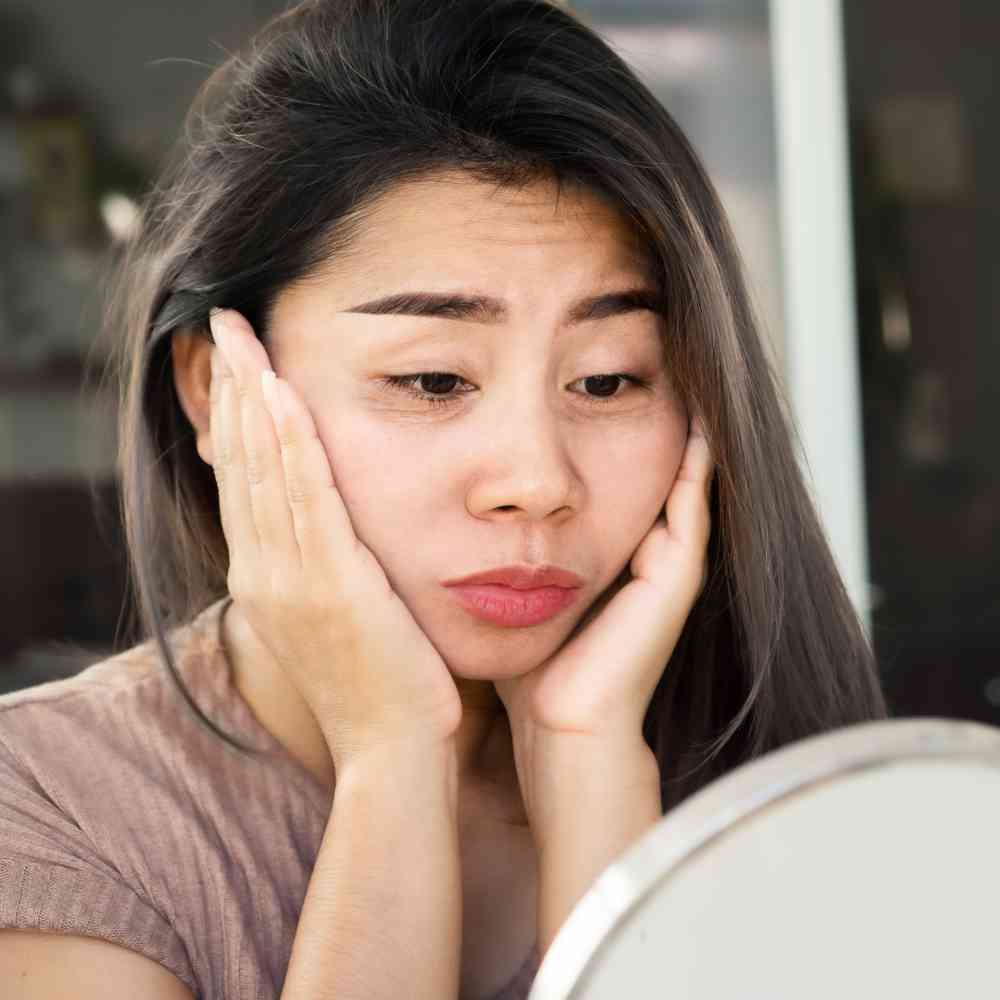
Pimple Panic: Does Acne Age Your Skin? The Truth Revealed
Ah, the eternal quest for youthful, glowing skin! We invest in skincare, religiously follow our routines, and slather on SPF like there's no tomorrow. But wait, there's a sneaky saboteur lurking beneath - acne!
We've all had our fair share of battles with those gross pimples, whether as awkward teens or well into adulthood. And hey, ever wondered if acne actually ages your skin?
Let's dive into this article and uncover the truth about acne prone skin and this condition's potential impact on the aging process. Get ready for some enlightening (and maybe even amusing) insights!
Acne 101
Acne is a skin condition that plagues many people in various age ranges. Acne sufferers are plagued by the presence of pimples, blackheads, whiteheads, and sometimes even cysts.
It arises when hair follicles become clogged with oil and dead skin cells, creating a breeding ground for bacteria.
Acne can occur anywhere on your body but is most common on the face, back, chest, and shoulders.

How Acne Can Age Your Skin
The link between acne and premature skin aging is way more intricate than you'd think! Let's dive into both sides of the story and unravel this fascinating connection. Here are the ways in which acne can age your skin.
Inflammation and Collagen Breakdown
One of the ways acne can impact the aging process of your skin is through chronic inflammation.
Pimples are essentially inflamed areas on your skin, and when inflammation persists, it can accelerate the breakdown of collagen.
Collagen is a protein responsible for maintaining the firmness and youthfulness of your skin.
As collagen levels decrease, your skin becomes more susceptible to the formation of fine lines and wrinkles, giving it an aged appearance.
Post-Inflammatory Hyperpigmentation
Acne often leaves behind stubborn dark spots and scars known as post-inflammatory hyperpigmentation.
These marks can make your skin look older as they take time to fade, if they ever do. The presence of these pigmented spots can contribute to an overall aged appearance, even after the acne itself has cleared.
Prolonged Breakouts and Scarring
Severe or prolonged acne outbreaks can result in scarring. Acne scars can significantly add years to the appearance of your skin, causing it to look uneven and mature.
The lasting effects of acne scars can contribute to an overall aged and damaged look, affecting your self-confidence and perception of your skin's youthfulness.
Understanding the various ways acne can impact the aging process of your skin is crucial in implementing effective skincare routines and treatments to maintain a youthful and vibrant complexion.
How Acne Might Not Age Your Skin
But wait, hold on! Despite what we've just mentioned, there might actually be some interesting explanations as to why acne doesn't speed up skin aging. Brace yourself, because I'm about to present these reasons that might just blow your mind! So, here goes nothing!
Oil Production
Ironically, oily skin - a common factor in individuals prone to acne - might have a small silver lining when it comes to aging.
Research suggests that oily skin tends to develop fewer wrinkles over time compared to dry or combination skin types. This might be due to the natural lubrication provided by the excess oil, which helps maintain moisture and elasticity in the skin.
However, it's important to note that managing oil production is still essential to prevent breakouts while enjoying this potential benefit.
Acne Products & Cell Turnover
Acne treatments often involve the use of exfoliating ingredients that encourage the shedding of dead skin cells. This process helps to unclog pores, reduce the appearance of acne scars, and improve overall skin texture.
By promoting regular exfoliation and cell turnover, acne treatments can potentially counteract some signs of aging, such as fine lines and uneven skin tone.
However, it's crucial to use gentle exfoliants and follow a proper skincare routine to avoid irritation and maintain skin health.
By understanding these potential benefits, individuals dealing with acne can have a more positive perspective on how it might affect the aging process of their skin.
The Importance of Proper Acne Management
Acne can have some aging effects on your skin, but with proper acne management, you can minimize its impact.
Managing acne effectively is crucial for maintaining healthy and youthful-looking skin. Here are some additional details on how to manage acne and minimize its potential impact on aging:
1. Seek Professional Help
It is highly recommended to consult a dermatologist for personalized acne treatments. They can assess your skin condition and recommend products and procedures that specifically address your unique concerns.
2. Be Gentle
Avoid aggressive scrubbing and picking at your skin. Harsh handling can aggravate acne and increase the risk of scars. Treat your skin with care and gentleness to promote healing and prevent further damage.
3. Sun Protection
Protecting your skin from harmful UV rays is essential for both acne management and preventing premature aging. Always wear sunscreen with a high SPF to shield your skin from the sun's damaging effects, which can worsen acne scars and accelerate skin aging.
4. Invest in Skincare
A well-rounded skincare routine is key to managing both acne and signs of aging. Look for products that not only address acne but also hydrate, exfoliate, and nourish your skin.
Ingredients like salicylic acid, benzoyl peroxide, and retinol can be beneficial in managing acne while promoting a youthful complexion.
By implementing these strategies, you can effectively manage acne and maintain healthy, vibrant skin that stands the test of time.
Acne & Aging
So, does acne age your face faster? The answer is both yes and no. The aging effects of acne largely depend on how you manage your skin and acne.
With the right approach, you can minimize the impact of acne on your skin's youthful appearance.
Seek professional guidance, practice good skincare habits, and remember that clear, youthful skin is within your reach, regardless of your acne history.

















